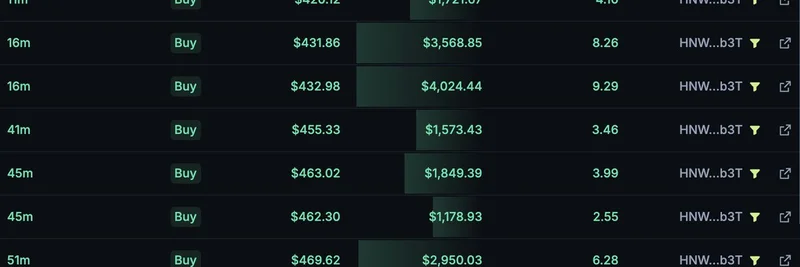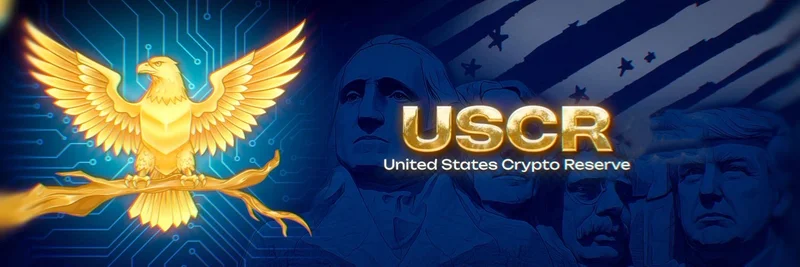Introduction to Sidra Chain
Hey there, crypto enthusiasts! If you've been keeping an eye on the evolving world of blockchain, you might have come across Sidra Chain. This platform is making waves by combining cutting-edge decentralized technology with Shariah-compliant principles from Islamic finance. Launched in 2022 and with its mainnet going live in October 2023, Sidra Chain aims to make financial transactions faster, more transparent, and cheaper than traditional banking—all while sticking to rules that avoid interest (known as riba), excessive uncertainty (gharar), and investments in prohibited sectors.
In a recent tweet from BSCNews, they posed the big question: Does Sidra Chain (@sidrachain) have what it takes to stick around in the crypto space, or is it just another hype cycle? Let's break it down and see what this project is all about.
Key Features That Set Sidra Chain Apart
At its core, Sidra Chain is a decentralized network that uses Proof-of-Work (PoW) consensus—think of it like Bitcoin's mining system but forked from Ethereum for better compatibility. This setup verifies transactions and adds them to a public ledger, ensuring everything is secure and tamper-proof.
Some standout features include:
- Smart Contracts: These are self-executing agreements that automate deals without needing a middleman.
- Peer-to-Peer Transactions: Send money directly to anyone, anywhere, cutting out banks and their fees.
- KYC Integration: Through partnerships like KYCPORT, users get verified identities, which helps with compliance and security.
- Shariah-Compliant Tools: It supports things like Sukuk (Islamic bonds) and Murabaha (a type of financing where you pay cost plus a profit margin), making it ideal for ethical investing.
If you're new to Shariah compliance, it's basically a set of guidelines from Islamic law that promote fairness and prohibit exploitative practices. Sidra Chain weaves this into blockchain, opening doors for the 1.8 billion Muslims worldwide who want crypto options that align with their values.
All About the SDA Token
No blockchain is complete without its native token, and for Sidra Chain, that's SDA (Sidra Coin). It's the fuel that powers the ecosystem:
- Use it for everyday transactions.
- Earn it through mining rewards.
- Pay for services within the Sidra network.
There are about 780 million SDA tokens in circulation right now, with most going to KYC-approved users. Interestingly, they've burned 19.5 million tokens (that's 2.5% of the total) as Zakat, which is a form of charitable giving in Islam. This shows their commitment to social responsibility.
Tokenomics-wise, while details on total supply aren't fully broken down here, the focus is on utility and community distribution. If you're into meme tokens or other cryptos, think of SDA as a more purpose-driven alternative, potentially hosting meme projects on its chain thanks to its Ethereum compatibility.
Roadmap and Global Expansion
Sidra Chain isn't just talk—they've got action. After launching the mainnet, they rolled out a mobile app in July 2024, available on Google Play. This app lets you mine SDA, manage your wallet, and even handle banking services right from your phone. Mining is super user-friendly; no fancy hardware needed—just verify your KYC and let it run in the background.
Looking ahead, their SidraClubs initiative is all about global growth. It's a community-driven approach that includes:
- Tokenizing assets with SidraChain.
- Crowdsourcing via SidraStart.
- Compliance tools through KYCPort.
They offer local partnerships for everything from entity setup to Shariah certification, aiming to lead in markets and create social impact. You can check out their blockchain explorer at ledger.sidrachain.com to verify transactions in real-time.
Real-World Applications in Crypto and Beyond
What makes Sidra Chain exciting is its practical uses, especially in areas where traditional finance falls short:
- Cross-Border Payments: Send funds internationally without hefty fees or delays, all while staying Shariah-compliant.
- Halal Supply Chain Tracking: For products like food or goods, track from farm to table to ensure they're certified halal (permissible under Islamic law).
- Ethical Fundraising: Startups can raise money through profit-sharing or asset-backed models, attracting investors who prioritize ethics.
In the meme token world, imagine deploying fun, community-driven tokens on a chain that's secure and aligns with broader values—Sidra could be a playground for innovative projects.
Community Buzz and Market Position
The Islamic finance market is booming, expected to hit $4.94 trillion by 2025, so Sidra Chain is tapping into a massive opportunity. It competes with projects like Islamic Coin on the HAQQ blockchain, but stands out with its PoW focus and mobile mining.
Community feedback is mixed—folks love the Shariah angle, but there are gripes about KYC delays, app glitches, and sparse docs. Still, they're active on socials with regular updates, which is a good sign for longevity.
Wrapping Up: Hype or Here to Stay?
So, back to that BSCNews tweet: Will the hype fade? Sidra Chain has solid tech, real applications, and a huge target market. But like any crypto project, success depends on adoption, fixing those early bugs, and building a strong community. If they deliver on their roadmap, this could be a game-changer for inclusive finance.
If you're intrigued, head over to their site or app and DYOR (do your own research). At Meme Insider, we're all about spotting trends in the blockchain space, even if they're not pure memes—after all, innovative chains like this could host the next big viral token! Stay tuned for more deep dives.



